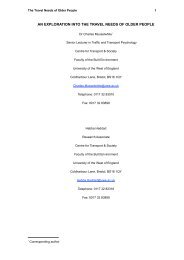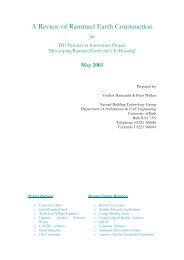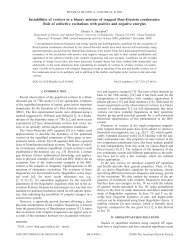Contents - Student subdomain for University of Bath
Contents - Student subdomain for University of Bath
Contents - Student subdomain for University of Bath
Create successful ePaper yourself
Turn your PDF publications into a flip-book with our unique Google optimized e-Paper software.
3.5. EQUATIONS AND INEQUALITIES 107<br />
S 3 projects onto [−1, 1], which is the union <strong>of</strong> three sets in (3.58). We have to<br />
decompose S 3 into four sets:<br />
S 3,1 = {(−1, 0)}, S 3,2 = {(1, 0)},<br />
S 3,3 = {(x, y) | x 2 + y 2 − 1 = 0 ∧ y > 0},<br />
S 3,4 = {(x, y) | x 2 + y 2 − 1 = 0 ∧ y < 0}.<br />
S 1 splits into eight sets, one above each <strong>of</strong> (−∞, −1) and (1, ∞) and two above<br />
each <strong>of</strong> the other components <strong>of</strong> (3.58). It is obvious that this is the minimal<br />
refinement <strong>of</strong> the original decomposition to possess a cylindric decomposition.<br />
Furthermore in this case no linear trans<strong>for</strong>mation <strong>of</strong> the axes can reduce this.<br />
If we wanted a sampled decomposition, we could choose x-coordinates <strong>of</strong> −2,<br />
−1, 0, 1 and 2, and y-coordinates to match, from {0, ±1, ±2}.<br />
Cylindricity is fundamental to solving problem 3 via the following two propositions.<br />
Proposition 42 Let<br />
∃x n . . . ∃x m+1 P (x 1 , . . . , x n ) (3.59)<br />
be an existentially quantified <strong>for</strong>mula, D be a sampled algebraic decomposition<br />
<strong>of</strong> R n which is sign-invariant <strong>for</strong> all the polynomials occurring in P , and D ′<br />
be a sampled algebraic decomposition <strong>of</strong> R m such that D is cylindrical over D ′ .<br />
Then a quantifier-free <strong>for</strong>m <strong>of</strong> (3.59) is<br />
∨<br />
Def(C ′ ). (3.60)<br />
Proposition 43 Let<br />
C ′ ∈D ′ ∃C∈Cyl(C ′ )P (Sample(C))<br />
∀x n . . . ∀x m+1 P (x 1 , . . . , x n ) (3.61)<br />
be a universally quantified <strong>for</strong>mula, D be a sampled algebraic decomposition <strong>of</strong><br />
R n which is sign-invariant <strong>for</strong> all the polynomials occurring in P , and D ′ be<br />
a sampled algebraic decomposition <strong>of</strong> R m such that D is cylindrical over D ′ .<br />
Then a quantifier-free <strong>for</strong>m <strong>of</strong> (3.61) is<br />
∨<br />
Def(C ′ ). (3.62)<br />
C ′ ∈D ′ ∀C∈Cyl(C ′ )P (Sample(C))<br />
These two propositions lead to a solution <strong>of</strong> problem 3.<br />
Theorem 25 ([Col75]) Let x 0 , . . . , x k be sets <strong>of</strong> variables, with x i = (x i,1 , . . . ,<br />
x i,ni ), and let N i = ∑ i<br />
j=0 n j. Let P (x 0 , . . . , x k ) be a semi-algebraic proposition,<br />
D i be an algebraic decomposition <strong>of</strong> R Ni such that each D i is cylindric over D i−1<br />
and D k is sign-invariant <strong>for</strong> all the polynomials in P . Then a quantifier-free<br />
<strong>for</strong>m <strong>of</strong><br />
Q k x k . . . Q 1 x 1 P (x 0 , . . . , x k ) (3.63)


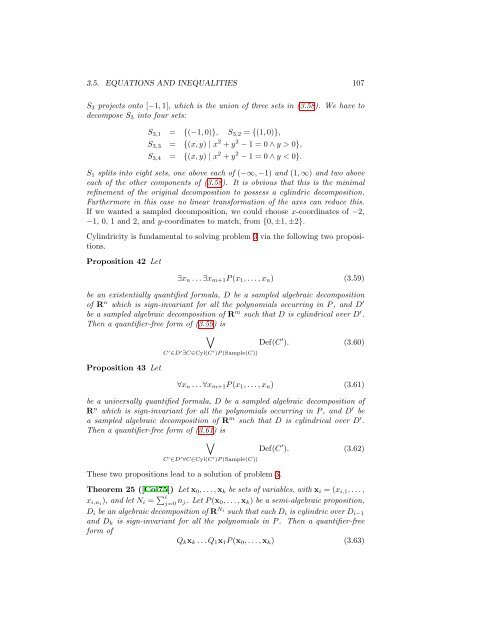
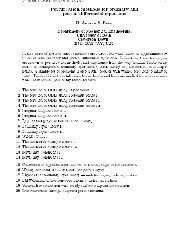
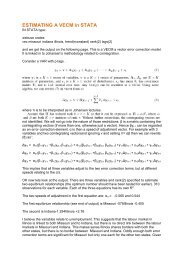

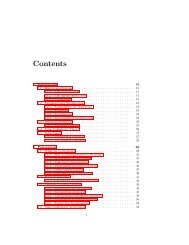
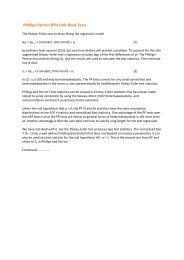
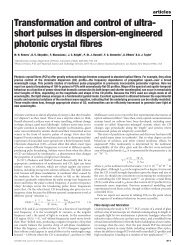
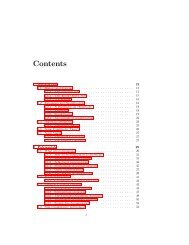

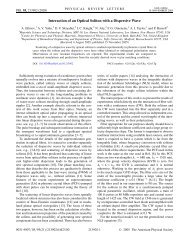
![[Luyben] Process Mod.. - Student subdomain for University of Bath](https://img.yumpu.com/26471077/1/171x260/luyben-process-mod-student-subdomain-for-university-of-bath.jpg?quality=85)

